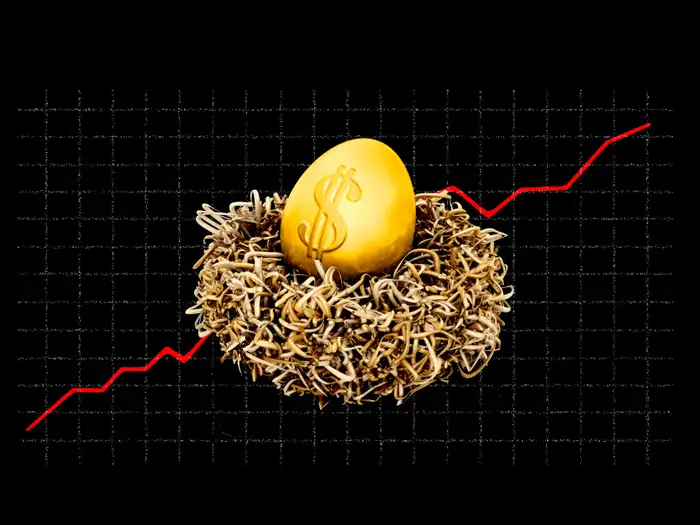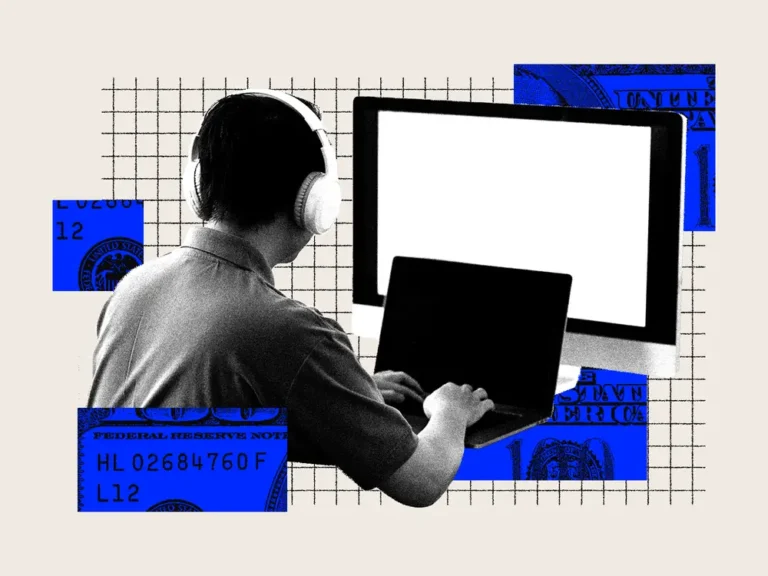Tech execs send signals about where their companies are headed

Welcome back to our Sunday edition, where we round up some of our top stories and take you inside our newsroom. Nvidia CEO Jensen Huang said the first thing he’d do as a student today is “learn AI” and how to interact with the various tools. The next 10 years, he said, will be about the application of AI as much as the core development of it.
On the agenda today:
- Federal employees react to Trump’s payout offers.
- Hedge funds are pushing legal and ethical limits to verify traders’ past performances.
- Eggs got expensive and are likely staying that way. Here’s why.
- Older Americans who retired with more than $1 million share their advice and regrets.
But first: A big week for Big Tech.
Inside tech

Our name is B-17 for a reason.
We aim to bring you inside what’s going on at the world’s most influential companies.
This past week, our reporters hustled to get you scoops on Meta, Amazon, Microsoft, and Dell.
And we’ve extended our focus to the federal government, the nation’s biggest employer, which is not a company but is increasingly being operated like one.
Even if you don’t work in these places, the insights our exclusives offer are relevant to almost anyone in the workplace.
B-17’s reporters brought readers details from Mark Zuckerberg’s all-hands, where he talked about the importance of “AI agents” to the future of work. The Meta CEO predicted this would be the year an intelligent and personalized digital assistant would help 1 billion users. “I think whoever gets there first is going to have a long-term, durable advantage towards building one of the most important products in history.”
Our ace Amazon reporter Eugene Kim unearthed more about the company’s efforts to become leaner, including one set of guidelines that advised managers to have at least eight direct reports, up from six.
Meanwhile, Ashley Stewart scooped more details about Microsoft’s performance-based job cuts, and Polly Thompson and Jyoti were first out with Dell’s return-to-work plans — five days a week if you live near a Dell office.
From AI and ROI to RTO and DEI, workplaces are changing rapidly. Helping you navigate it all is a key goal for us at B-17.
Blindsided by payouts

Outrage. Despair. Confusion.
In interviews with B-17, federal workers described feeling a flood of emotions about the Trump administration’s widespread payout offers.
Some are defiant — “I have no intention of quitting” — while at least one worker is considering moving to the private sector. Many also had questions about whether the administration will stick to its commitment of steady pay and benefits through September for those who accept the offer.
Hedge fund hiring’s catch-22

For hedge funds, hiring a bad PM can come with sky-high costs. Knowing that plenty of PMs exaggerate their exploits for a chance at a multimillion dollar job move, some funds ramp up their vetting process by asking candidates for evidence of past performance.
The problem? Evidence is often sensitive information that’s difficult to access legally. That leaves funds in murky legal and ethical territory as they look to suss out bad potential hires without breaking confidentiality agreements and alienating top candidates.
Eggs may be expensive forever

If there’s one grocery item that epitomizes consumers’ frustration with high prices nowadays, it’s eggs. They’re a staple in the kitchen and a healthy protein source that won’t break the bank — that is, until recently.
The cost of a dozen grade-A large eggs hit $4.15 in December, per the Bureau of Labor Statistics, up from $2.51 a year ago. Factors like the fight against bird flu, increased demand, and the push toward cage-free eggs, are some reasons egg prices are spiking. And it’s not clear when it will come back down.
The millionaire boomer next door

They might not have a flashy car or a big house, but plenty of older Americans are sitting pretty in retirement. B-17 spoke to four boomers with over $1 million in assets about how they built such a healthy nest egg.
The retirees spoke about their savings journey, the mistakes they made along the way, and how they’re spending their money now.






